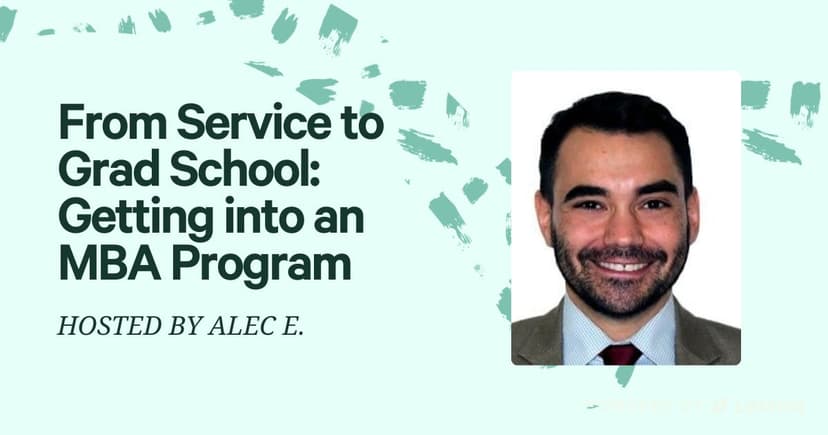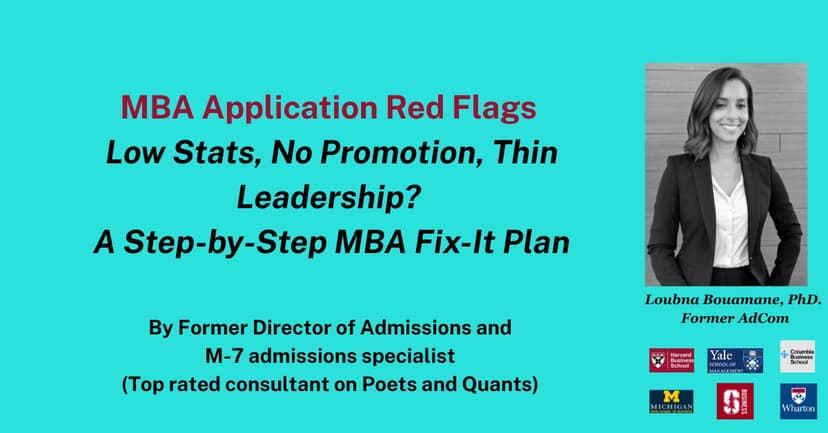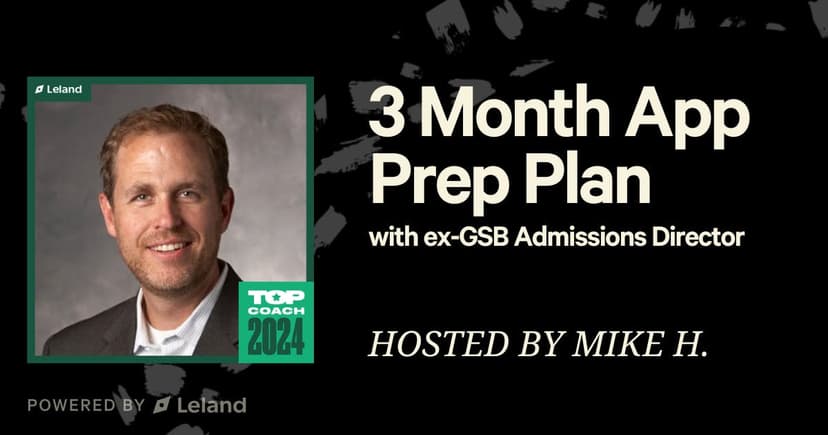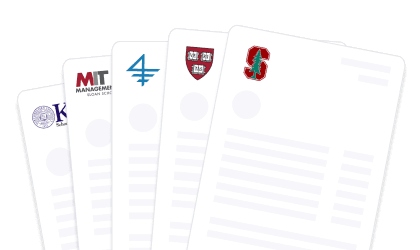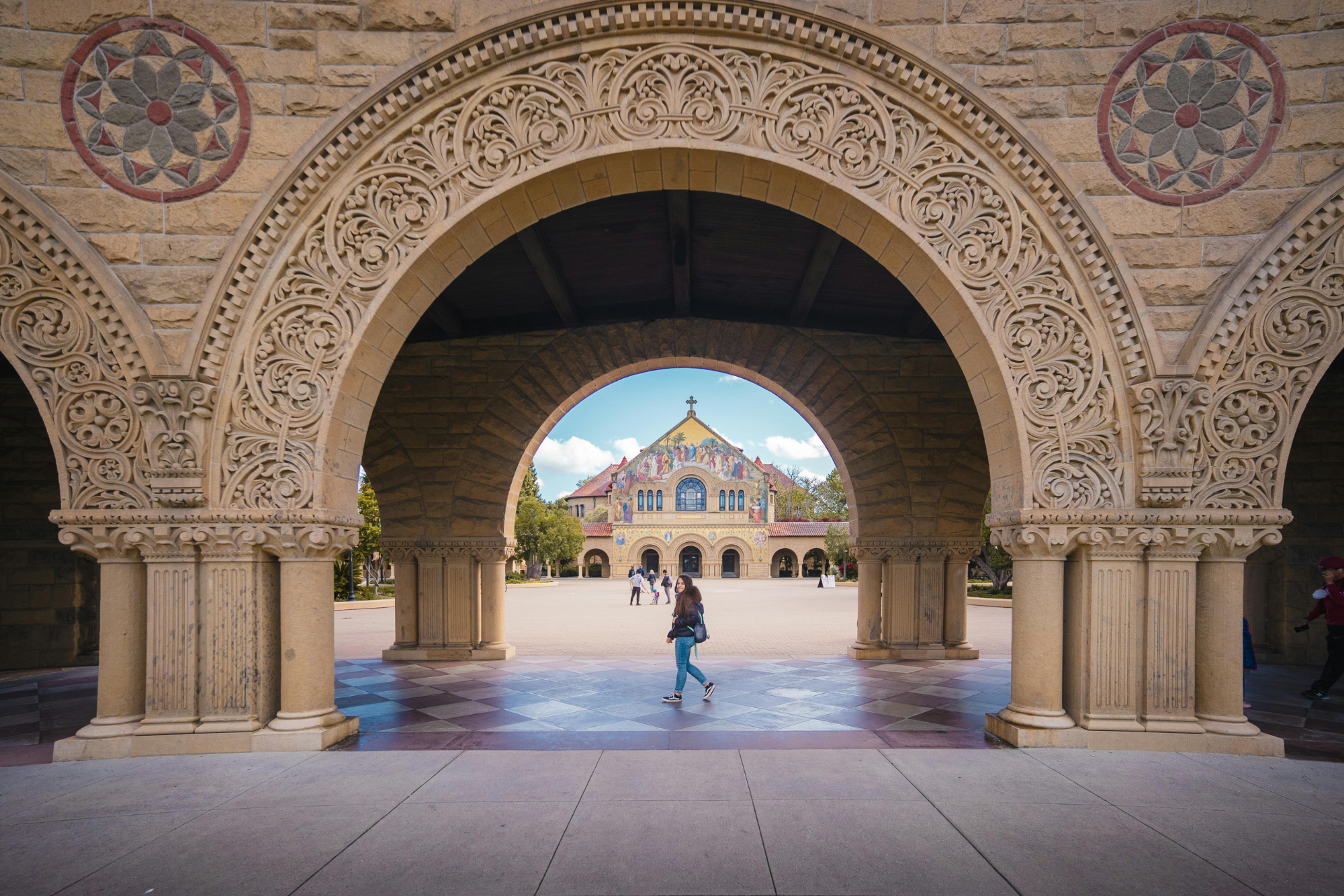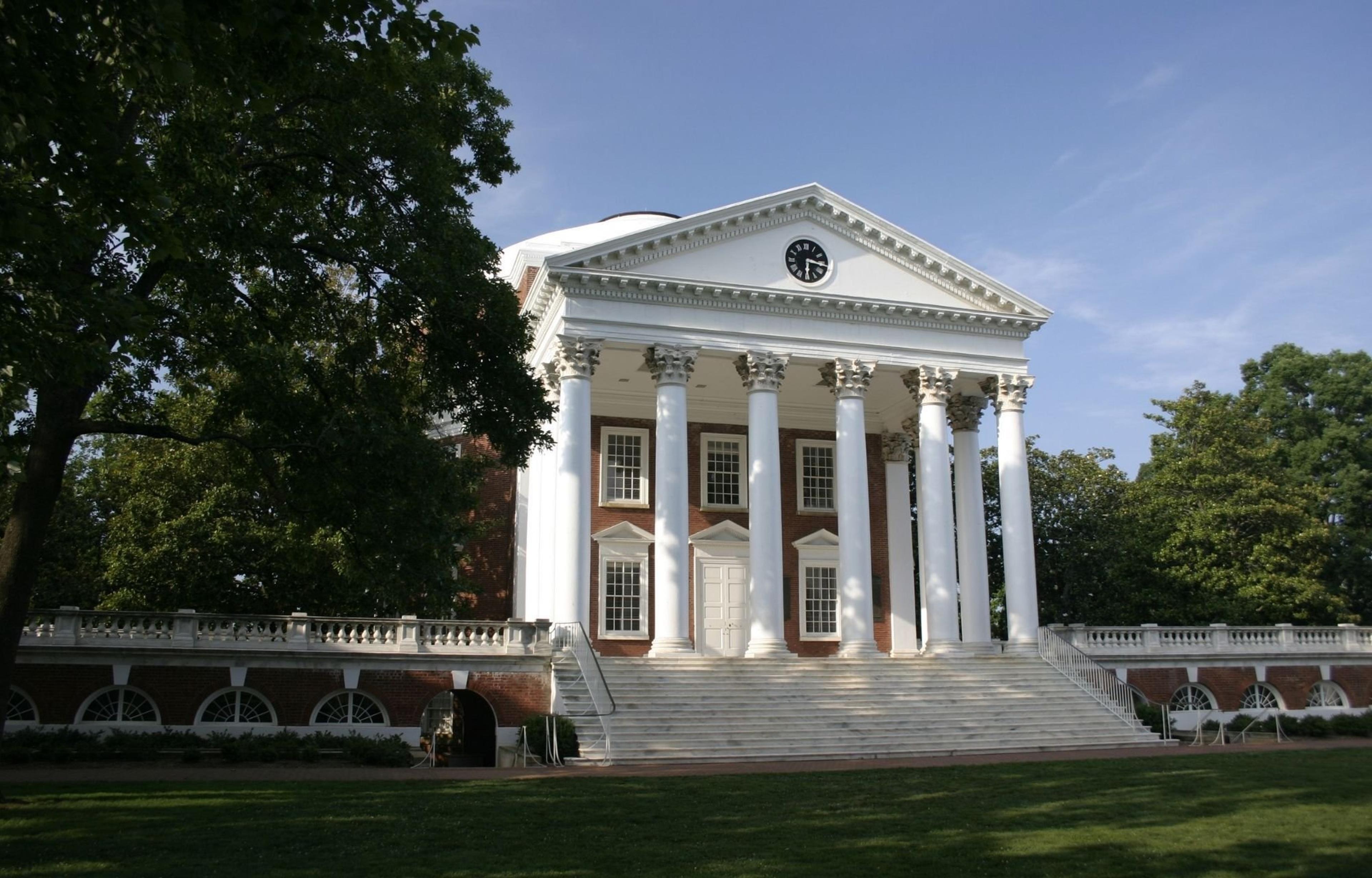Stanford MBA Interview Prep Guide: Overview, Questions, & Tips
Nail your Stanford GSB MBA interview with this comprehensive guide from a Stanford MBA alumnus! Get an overview, common questions, and valuable expert tips to ace this crucial step toward your business school dreams.

By John K.
GSB and HBS 2+2 Deferred Admit | 50+ admits to top deferred programs
Posted June 13, 2025
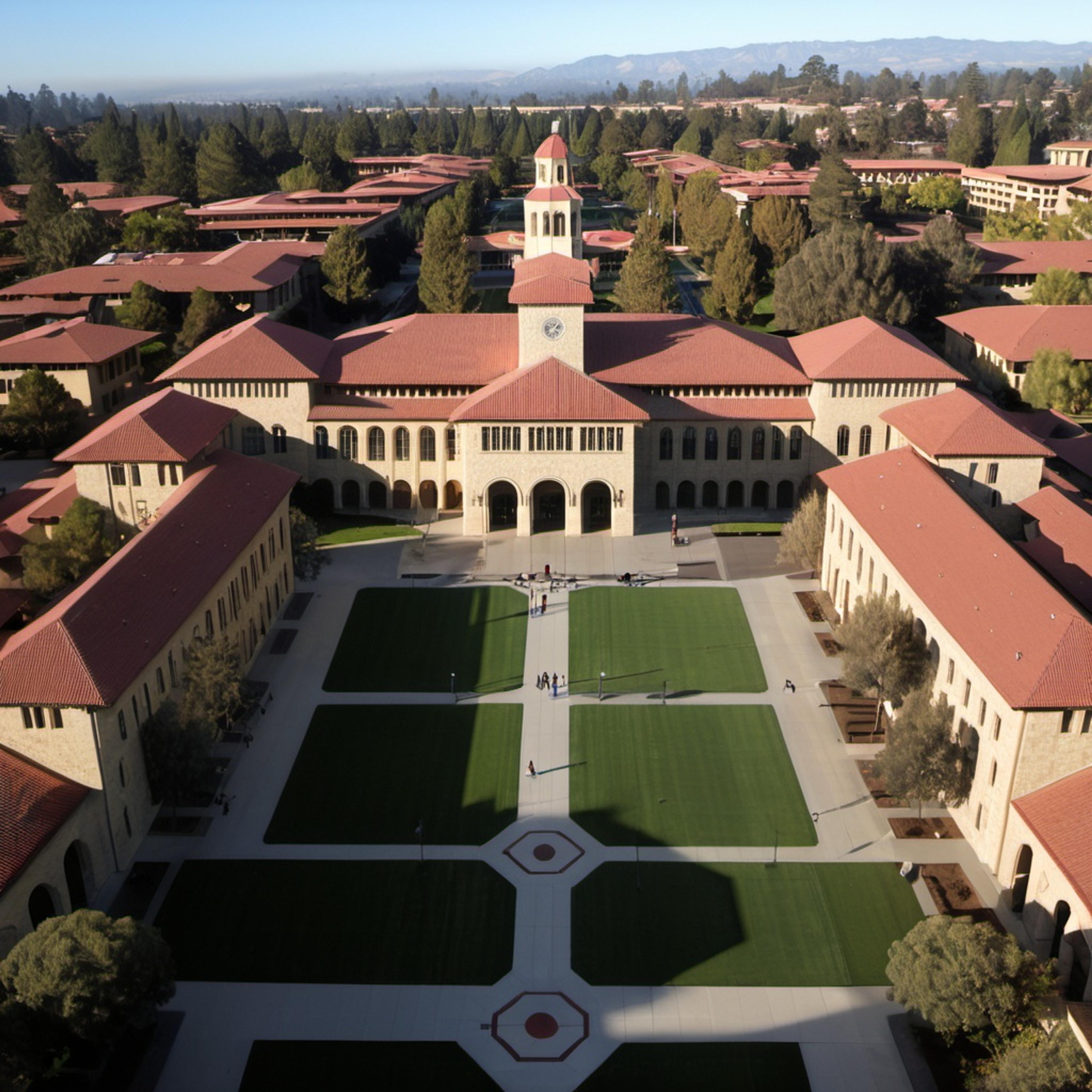
Join a free event
Learn from top coaches and industry experts in live, interactive sessions you can join for free.
Table of Contents
So you’ve received an interview invite from Stanford’s MBA program? Congrats! This is a huge step in your journey to admission, and one that very few people achieve. Landing a GSB interview means they are excited to get to know you better, and your chance of admission just went from 6% to 50% — that’s a big deal!
In this article, I’ll set you up with an overview of the GSB interview process, a list of common interview questions, tips to excel in the interview, general MBA interview tips to help you stand out, and FAQs about the GSB interview. I hope this information will empower you to confidently navigate the interview and secure your place in the Stanford MBA program.
For more interview tips, read: How to Ace Your MBA Interview: With Prep Questions & Answers
Stanford GSB MBA Application and the Role of Interview
Making it to the interview stage of the application process is a huge milestone because it shows that Stanford GSB believes you have what it takes to join the program and is interested in learning more about you. While your application, including your essays, resume, and academic record, showcases your qualifications and experiences, the interview enables the admissions committee to get a deeper understanding of who you are as a person and potential student. It provides an opportunity for you to demonstrate your personality, leadership potential, and alignment with the program's values. While not a guarantee of admission, the interview does indicate that the school is seriously considering your application.
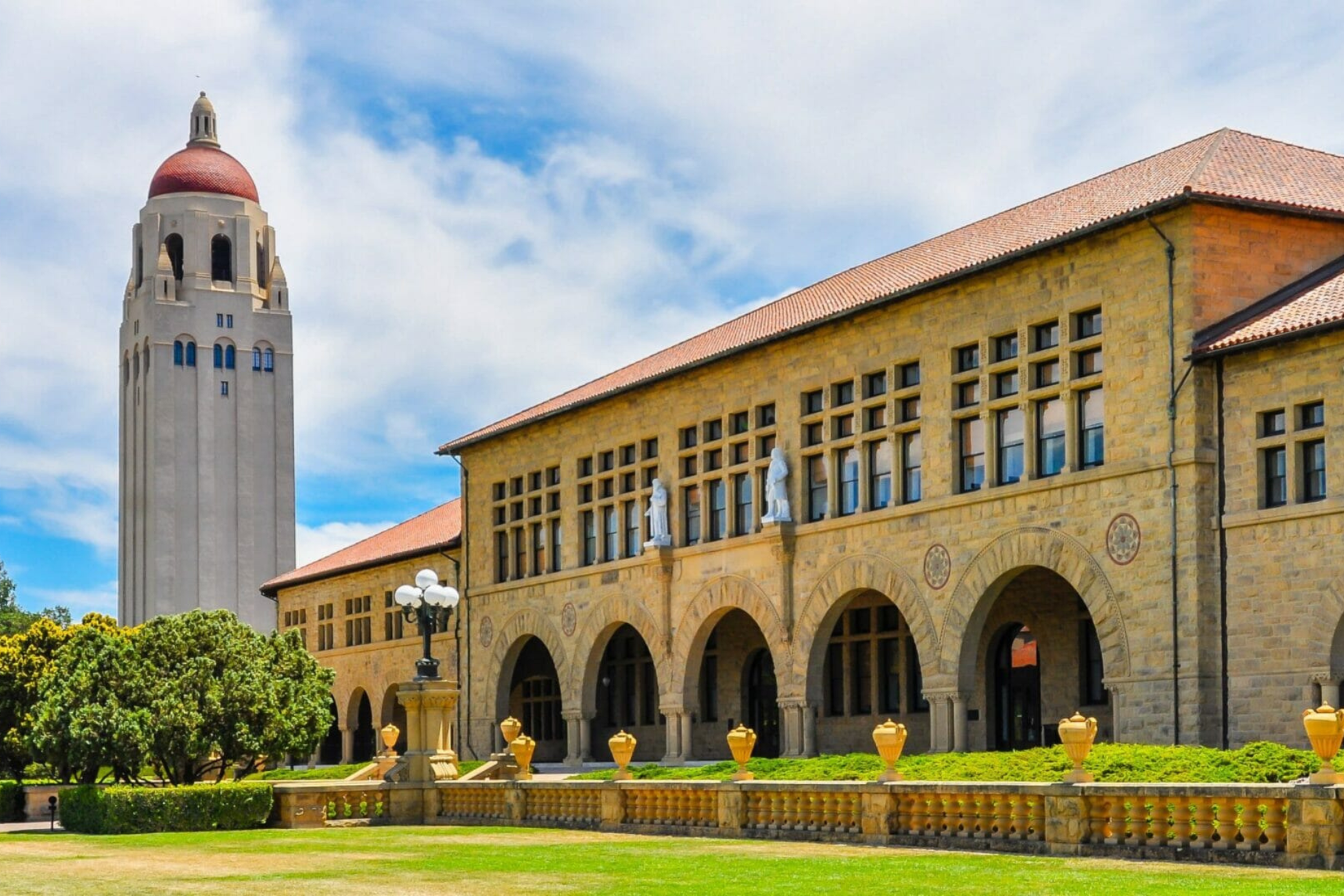
Stanford GSB Interview Format
- Conducted by: Typically an alum, sometimes an admissions officer
- Format: Typically off-campus in-person with your interviewer, but could be a video call
- Time: Typically ~45-60 minutes
- Questions: Behavioral driven, more conversational
- Type: Partially blind, they've read your resume but not your whole application
The Stanford GSB interview is designed to assess your fit with the program, your leadership potential, and your ability to reflect deeply on your experiences. The interview is behavioral-driven, meaning most questions will focus on how you’ve handled situations in the past. Expect it to feel more like a conversation than a grilling, with the interviewer aiming to understand your thought processes, motivations, and values.
Since the interview is partially blind – meaning your interviewer will only have access to your resume – it’s important to clearly articulate your story and provide enough context for your answers. Be prepared to discuss key moments in your professional and personal life that showcase your past leadership accomplishments, decision-making, and ability to learn from challenges.
Interviews are typically about 45 minutes long, so each response should be concise but rich in detail. Because it’s more of a structured behavioral interview, you can use the STAR method (Situation, Task, Action, Result) as a framework for your answers. Focus on providing specific examples that highlight your impact. Additionally, have a few thoughtful questions prepared to ask your interviewer – it’s a great way to demonstrate genuine interest in the program. For more tips there, read: Top 20 Questions to Ask During Your MBA Application Interview.
Stanford’s interview is an opportunity to showcase not only your accomplishments but also your authenticity and self-awareness. Prepare thoroughly, but don’t forget to let your unique personality shine through. At the end of the day, they're admitting a person, not a list of accomplishments.
How Many People Get an Interview at the Stanford Graduate School of Business?
Stanford admits around 450 people each year for a total class size of 400-425. There is a 30-50% acceptance rate post-interview which means, on average, they're interviewing 900-1200 people each year. The Class of 2026 had 7,295 applicants so roughly 12-16% of applicants received interviews.
Most Common Stanford GSB Interview Questions
As you start to prep for your Stanford GSB MBA program interview, make sure to familiarize yourself with common interview questions that the admissions committee often asks. Here is a list of potential questions to help you practice and refine your responses (note that most are behavioral questions!):
- Is Stanford your number one? Why?
- Why an MBA?
- What are your post-MBA plans?
- Tell me about a time when you led a team.
- Tell me something that you've done that you are proud of.
- Tell me about a time when you hit a barrier.
- Tell me about a time you worked with a difficult team.
- Tell me about a time you contributed to a team.
- Tell me about a time where you accomplished something.
- Tell me about a time when you disagreed with someone above you.
- Tell me 5 adjectives that describe you.
- Tell me why you made X career transition.
- Tell me about a time when you went above and beyond.
- Tell me about a time when you persuaded somebody else to do something different.
- Tell me about a time when you changed the culture of something.
- Tell about a time when you saw an opportunity.
- Tell me about a time when you obtained resources.
- Tell me about yourself and your background.
- Why do you want to pursue an MBA at Stanford GSB? / Why Stanford?
- Describe a significant leadership experience you have had.
- How do you handle working in a team?
- How do you define success?
- Tell me about a time when you faced a challenge and how you dealt with it.
- What sets you apart from other candidates?
- Describe a time when you had to make a difficult decision.
- What are your short-term and long-term career goals?
- Describe a time when you had to work with someone difficult.
- How do you prioritize your work?
- What is your leadership style?
- Tell me about a time when you had to persuade someone to see things from your perspective.
- How do you handle stress and pressure?
- Describe a time when you had to adapt to a new and challenging situation.
- Tell me about a time when you had to work with a diverse group of people.
- Describe a time when you had to take initiative.
- What is your strategy for managing time and deadlines?
- Tell me about a time when you had to resolve a conflict.
- How do you handle feedback and criticism?
- Describe a time when you had to overcome a setback.
- What do you think is the biggest challenge facing businesses today?
- Tell me about a time when you had to work under tight deadlines in the past few years.
- How do you stay updated with industry trends?
- Describe a time when you had to motivate a team.
- Tell me about a time when you had to make a difficult ethical decision.
- Describe a time when you had to manage a project with limited resources.
- Tell me about a time when you had to work on a cross-functional team.
- How do you handle competing priorities?
- Describe a time when you had to manage a conflict within a team.
- What is your strategy for building a strong professional network?
- Tell me about a time when you had to work with limited information.
- Describe a time when you had to lead a team through a difficult situation.
- What is your approach to decision-making?
- Tell me about a time when you had to deal with a difficult colleague.
- How do you handle competing deadlines?
- Describe a time when you had to resolve a conflict between team members.
- Tell me about a time when you had to work with limited resources.
Remember, being well-prepared and practicing your responses can greatly enhance your interview performance and confidence.
These Stanford GSB interview questions are a great place to start, but know that adequately preparing for your interviews will require more than just memorizing answers to them. It's important to understand the underlying principles and values that the admissions committee seeks in interviewed candidates. Stanford GSB values leadership, innovation, and a commitment to making a positive impact in the world.
How to Ace Your Stanford MBA Interview
- Research your interviewer beforehand. Look them up on LinkedIn. Since they most likely live in/near your area, there’s a chance you’ll have some mutual connections who might be able to give you an idea of what your interviewer is like. If nothing else, look them up on LinkedIn and know their industry and career path.
- Try to make a personal connection. Take advantage of the time you have at the beginning to get to know your interviewer; find out about them and talk about things you have in common.
- Prepare several questions in case they want you to lead the interview. I’ve heard of several GSB interviews where the interviewer left 30 or more minutes to let the interviewee guide the conversation. Ask about their experience, not program logistics or things you could look up online.
- If you get the chance, make the interviewer feel something at the end of your interview. Tell them you are grateful for this opportunity and if you got the chance to attend Stanford, you'd do everything possible to make the most of it and contribute to the school and broader community.
- Research the program extensively to demonstrate your genuine interest. You should have a really clear and personalized reason for why Stanford is the best place for you compared to every other business school.
- Prepare thoughtful questions to ask the interviewer about the program. Don't ask questions that you can find the answer to online. The best ones are those that are relevant to your background/goals and to the interviewer's knowledge. What do they have a unique perspective on?
- Showcase your interpersonal skills and ability to contribute to the Stanford GSB community. Stanford GSB is known for having classes with high EQ and they want to build future classes that are cohesive and supportive.
- Highlight your accomplishments, but also share stories of learning from failures or setbacks. You are a real, whole person, not a list of admissions statistics. Think about how you have gotten to where you are today - what were the biggest turning points? Where did you make a very intentional decision?
- Demonstrate your alignment with the program's values and commitment to making a positive impact. Schools care about fit; they want to admit people who 1) genuinely want to go to that program and 2) will mesh well with the rest of the class. The best way to start to find your answer to this is to talk to alumni and current class members. Learn about their experience, their classmates, what they are enjoying/dislike about the program, etc.
- Practice answering questions with a focus on brevity, clarity, and sincerity. I highly recommend doing several mock interviews with an MBA coach – it is the absolute best way to prepare to answer questions effectively and authentically.
General MBA Interview Tips
MBA interviews, including Stanford GSB's, are about more than just your qualifications – they’re a chance to tell your story in a way that resonates. To stand out, focus on being authentic. The admissions team can spot rehearsed answers a mile away, so instead of trying to say what you think they want to hear, share genuine insights into who you are, what drives you, and how an MBA fits into your bigger picture. Your uniqueness is your advantage, lean into it. (Note: This isn't to say you shouldn't practice beforehand; you absolutely should. But you should not over-rehearse to the point that your answers come off as rote. There is a fine line between practiced and memorized, a line that a coach can definitely help you find.)

Active listening is another critical skill. MBA interviews are conversations, not monologues. Pay close attention to the questions asked, pause if needed, and respond thoughtfully. Engaging with the interviewer shows maturity, respect, and an ability to think on your feet.
Be prepared to articulate not only what excites you about business but also why you’re eager to learn, lead, and make an impact. Use specific examples from your past to illustrate how you’ve tackled challenges or led initiatives, and then tie those experiences to the skills you want to develop during the MBA program. This helps demonstrate that you’ve put serious thought into how business school bridges your past achievements and future ambitions.
Lastly, don't forget about the follow-up. A thoughtful thank-you note can leave a lasting impression. Reference specific parts of the conversation and reiterate your enthusiasm for the program – it’s a small gesture that shows your attention to detail and genuine appreciation for the opportunity.
Interview With a Stanford GSB Admit
Watch the following interview with a recent admit to Stanford GSB. He discusses every part of the Stanford MBA application, including the interview process. You can also read his story here.
Ace Your Stanford MBA Interview With the Help of an Expert
Your Stanford GSB MBA interview is an amazing opportunity to present yourself as a strong candidate for the program. For any MBA interview prep, starting early and getting help are the keys to success. You want to make sure you've reviewed your experiences and know how to talk about them, have other anecdotes ready that highlight your strengths, and know what you want out of Stanford GSB/the MBA program – an MBA coach can help with all of this, and so much more. Browse all coaches here, and check out this MBA Interview Package.
Stanford GSB MBA Interview FAQs
Is the interview invitation an indication of acceptance?
- While receiving an interview invitation is a positive sign, it does not guarantee acceptance. The interview is one of several factors considered in the overall evaluation of your application.
Should I visit campus for an on-campus interview?
- No, and usually you won’t have this option. You will be matched with someone in the alumni community who is based in your area and will likely invite you to interview over Zoom or in a location off campus (in most cases).
Can I request a specific interviewer?
- No, Stanford GSB assigns interviewers based on availability and fit. Rest assured, all interviewers are trained and knowledgeable about the program.
What percentage of Stanford GSB applicants get interviews?
- About 12-16% of Stanford GSB applicants receive interviews. The school interviews 2-3 people for every seat and admits ~450 people each year for a class of 400-425.
Does a Stanford GSB interview matter?
- Yes! Your Stanford GSB interview is a very important component of the application. It is your chance to show who you are as a person demonstrate your fit with the program, and build rapport with your interviewer. You should take your interview prep very seriously and ideally, work with an expert on your answers.

Written by John
5.0
(76)
Welcome to my profile! I'm the CEO & Co-Founder of Leland—a platform that has helped millions of people reach their most ambitious goals, raised $20M from top investors like Forerunner and GSV, and was a Forbes 30u30 recipient in 2022. Prior to Leland, I worked in product at Uber, LinkedIn, and Curated. I attended Stanford GSB for my MBA< BYU for undergrad, and now live in Lehi with my wife, Karli, and four boys. I love working with people who are wanting to build a company, work at startups, apply to product roles, apply to top MBA programs, or just accelerate their career in any way. Looking forward to getting to know you!
John has helped clients get into organizations like:
Browse hundreds of expert coaches
Leland coaches have helped thousands of people achieve their goals. A dedicated mentor can make all the difference.
